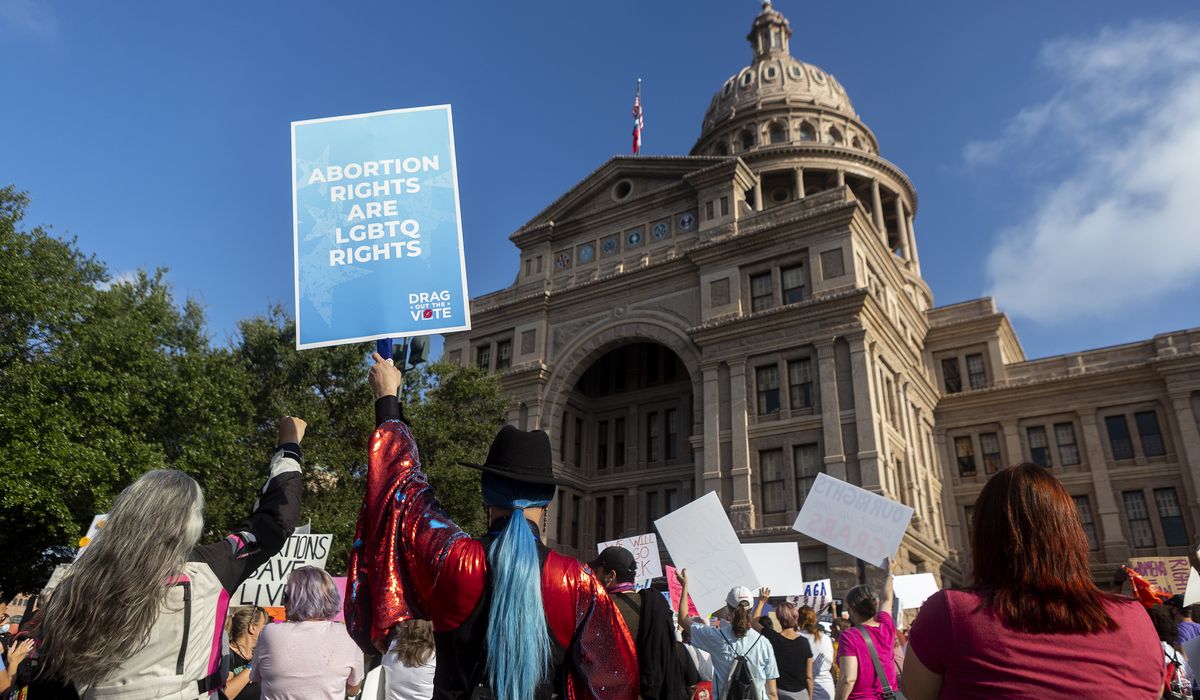
A federal judge on Wednesday blocked a Texas law that made it unlawful to receive or perform an abortion after a fetal heartbeat was detected.
Judge Robert Pitman, an appointee of former President Obama, sided with the Biden administration’s Justice Department, which sued the state, arguing Texas’ law ran afoul of constitutional rights of women.
The move blocks the law, known as Senate Bill 8, from being enforced while litigation continues.
During oral arguments on Friday, the Justice Department told the court that Texas’ law unlawfully supersedes women’s constitutional rights.
“The United States is substantially likely to succeed on the merits of its claims. It is substantially likely that S.B. 8 violates the Fourteenth Amendment,” the judge wrote.
The victory for pro-choice forces may be temporary though.
At the Friday hearing, a lawyer from the Texas attorney general’s office said that if Judge Pitman were to grant an injunction against the law, the state would appeal to the 5th U.S. Circuit Court of Appeals, which had rejected a previous effort from abortion providers to block the law.
The state law bans abortion at around six weeks of pregnancy, which is about the time a fetal heartbeat is heard. But the Justice Department said Supreme Court precedent dating back decades gives women a Constitutional right to an abortion up until a fetus is viable, which is usually around 24 to 28 weeks.
Under the law, state officials don’t enforce the abortion ban, but private citizens can sue if they have knowledge a provider illegally performed an abortion after a heartbeat was detected.
Judge Pitman’s ruling comes roughly one month after the law went into effect on Sept. 1. The Supreme Court declined to block its enactment, leaving the law in place while litigation against it continues in lower courts.
Abortion providers challenged the law initially — prior to the Justice Department filing its separate lawsuit — and the providers have asked the high court to get involved before a lower court issues a ruling.
The justices, in declining to halt its enforcement, did not resolve whether the law was constitutional, but the court noted the abortion providers fighting it had sued defendants who are not likely to enforce the law.
The abortion providers had sued state and local officials, but under SB 8, it would be private citizens bringing the lawsuits against the providers. Anyone who successfully sues someone who assists in an abortion after six weeks would receive at least $10,000.
That case is currently pending before the 5th U.S. Circuit Court of Appeals.
The Texas law banned most pre-viability abortions, including in instances of rape or incest, a point of contention with pro-choice advocates.
Since the Supreme Court decided in 1973 that women had a right to abortion in the case of Roe v. Wade, pro-life advocates and conservative states have aimed to chip away at that ruling.
Texas is not alone in its recent attempt.
The Supreme Court has agreed to decide whether Mississippi’s ban on abortion after 15 weeks runs afoul of its 1973 ruling in Roe v. Wade during this term. The case will be heard in December with a ruling expected in June.
Unlike in the Texas case, lower courts blocked the Mississippi law from taking effect, but the Supreme Court agreed to review that move.
